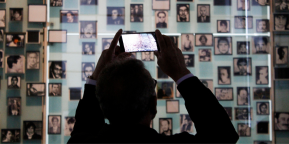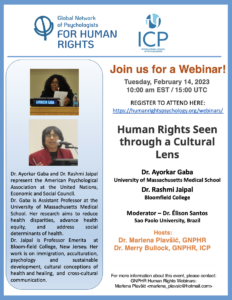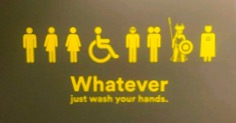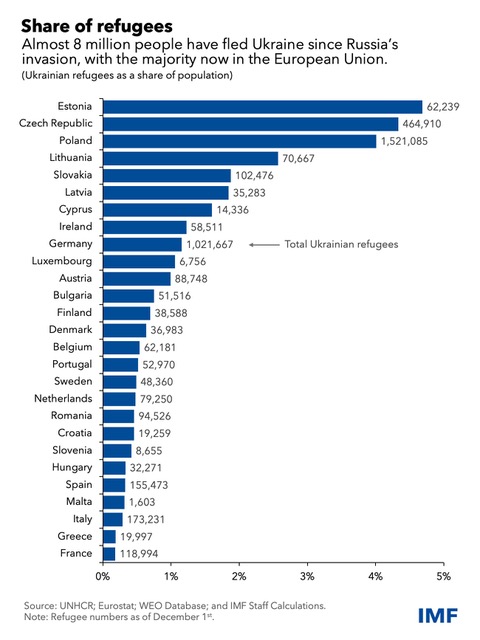
Editor’s Note
The focus in this month’s Bulletin is on the International Holocaust Remembrance Day, January 27.

Table of Contents
Special Focus: International Holocaust Remembrance Day, January 27.
- Editor’s note
- Unesco Events in Honor of International Holocaust remembrance Day
- GNPHR opinon piece/blog:Commemorating the Holocaust, Confronting the Legacy of Eugenics in Psychology
- Related Articles
SPECIAL SECTION

Editor’s Note
The focus in this month’s Bulletin is on the International Holocaust Remembrance Day, January 27.
For me the Shoah remains incomprehensible; many authors have tried to explain the inexplainable. Giorgio Agamben (Remnants of Auchwitz: The Witness and the Archive, 2020) writes that we must not stop thinking about Auschwitz. If we assume that Auschwitz is incomprehensible, we unconsciously block the question of how Auschwitz ever became possible. And until we understand the logic of the unspeakable of the camps, we risk it happening again.
The United Nations General Assembly designated January 27—the anniversary of the liberation of Auschwitz-Birkenau—as International Holocaust Remembrance Day https://www.un.org/en/outreach-programme-holocaust/page/2022 ).
On this annual day of commemoration, the UN urges every member state to honour the six million Jewish victims of the Holocaust and millions of other victims of Nazism and to develop educational programs to help prevent future genocides.
Suggestions are given on this site on how to mark the day: https://www.ushmm.org/remember/international-holocaust-remembrance-day
UNESCO Activities
Every year, UNESCO pays tribute to the victims of Nazi persecution and raises awareness about the history of the Holocaust, its causes and its consequences for our societies today. It is an opportunity to recall UNESCO’s unwavering commitment to promote human rights, to counter antisemitism and racism, and to prevent future genocide.
In 2023, UNESCO will mark the Day with a series of events organized at UNESCO Headquarters and field offices.
- Commemoration Ceremony on 26 January 2023. The ceremony, hosted in partnership with the Shoah Memorial, will include remarks by Audrey Azoulay, Director-General of UNESCO and Eric de Rothschild, President of the Shoah Memorial. The event will also include the performance of Jorge Grundman’s Shoah, for Solo Violin and Sacred Temple by violinist Robert Davidovici, Survivor testimony presented by Isabelle Choko, President of the Union of Auschwitz Survivors, France, and Kaddish and El Male Rachamim by cantor and mezzo-soprano Sofia Falkovitch. It is an in-person event.
- Attend the ceremony on Thursday 26 January 2023 at 18:00, UNESCO Headquarters, Room I. Contact: Heather Mann – mann@unesco.org Register
 Global Screening of Ari Folman’s Where is Anne Frank!Ari Folman’s first international animated film on the Holocaust has been selected as part of the 2021 Cannes Film Festival official selection. In her diary, Anne Frank addressed her imaginary friend Kitty. In his new animated film Where Is Anne Frank, Israeli director Ari Folman brings Kitty to life for the first time, telling her own story. In search of her best friend Anne Frank, Kitty becomes a witness to the Frank family’s last months in the Holocaust, and to Europe after the Second World War.
Global Screening of Ari Folman’s Where is Anne Frank!Ari Folman’s first international animated film on the Holocaust has been selected as part of the 2021 Cannes Film Festival official selection. In her diary, Anne Frank addressed her imaginary friend Kitty. In his new animated film Where Is Anne Frank, Israeli director Ari Folman brings Kitty to life for the first time, telling her own story. In search of her best friend Anne Frank, Kitty becomes a witness to the Frank family’s last months in the Holocaust, and to Europe after the Second World War.- To mark the International Day, the Anne Frank Fonds is making the film available for UNESCO Field Offices across the world: https://www.whereisannefrank.com/en
- Educational materials: https://www.unesco.org/en/tags/education

GNPHR Blog – in honor of the International Day of Remembrance of the Holocaust
The GNPHR published an opinion piece/blog by Marius Turda, Professor of Biomedicine at Oxford Brookes University and Director of its Centre for Medical Humanities. He is the curator of a travelling exhibition entitled ‘We Are Not Alone’: Legacies of Eugenics (www.confront-eugenics.org). Commemorating the Holocaust, Confronting the Legacy of Eugenics in Psychology
Related Articles
Auerhahn, N. (2020). Dori Laub, MD (1937–2018), The International Journal of Psychoanalysis, 101:2, 379-387, https://doi.org/10.1080/00207578.2019.1674120
Chare, N. (2006). The Gap in Context: Giorgio Agamben’s “Remnants of Auschwitz”. Cultural Critique, 64, 40-68. University of Minnesota Press.
GNPHR NEWS AND EVENTS
Psychology Organizations and Human Rights
The Network of Human Rights Groups in Psychology Associations is open to representatives of psychology associations that have established a committee, office, or subgroup focused on psychology and human rights. If you are interested in joining the group please register your interest here https://humanrightspsychology.org/home/about/interest-form-gnphr-working-group/
 GNPHR Webinar Series – Human Rights and Psychology
GNPHR Webinar Series – Human Rights and Psychology
Next Webinar is February 14, 2023, 4 pm CET
Topic: Human Rights Seen Through a Cultural Lens
View all webinars in series here https://humanrightspsychology.org/webinarseries
CONTENT AREAS AND NEWS
General
The view of the past in international humanitarian law (1860–2020). Antoon de Baets, IRRC, International Review of the Red Cross (2022), 104 (920-921), 1586–1620.
This essay explores how the drafters of international humanitarian law (IHL) incorporated the past into their work between 1860 and 2020, and how they approached time, memory and history as indicators for this view of the past. Its sources consist of the complete series of general conventional and customary IHL instruments as well as the leading commentaries on them. For the IHL view of time, the impact of legal principles on the perception of time is scrutinized. Balancing nonretroactivity against customary international law and the humanity principle broadens the temporal scope towards the past, while balancing legal forgetting against imprescriptibility and State succession broadens it towards the future.
For the IHL view of memory, dead persons and cultural heritage are seen as crucial vectors. Attention to the fate of the dead has been a constant hallmark of IHL, while care for cultural heritage has an even longer pedigree. For the IHL view of history, the essay highlights that the International Committee of the Red Cross has consistently advocated State duties to the war dead and has organized an archival infrastructure to satisfy the need – later converted into a right – of families and society to search for the historical truth about them.
Furthermore, the responses of IHL drafters to five major historical challenges are examined. First, while in the realm of war crimes impunity prevailed for most of history, after World War II a system of war crimes trials was mounted, culminating in the International Criminal Court.
Second, soul-searching about the atrocities of World War II, including the Holocaust, helped create Geneva Convention IV of 1949, which protects civilians in wartime.
Third, the human rights idea was not fully embraced by IHL treaty drafters until 1968. Fourth, the IHL approach to civil wars was slow and incomplete, but its appearance in 1949 and coming of age in 1977 were breakthroughs nevertheless.
Fifth, colonial conflicts were not recognized as international wars in 1949, when this could have had considerable impact, but only in 1977, when decolonization was largely over. In all cases, the responses to these historical challenges came after long delays. Clearly, the IHL view of the past has to be assessed on a transgenerational scale.
What future for human rights? Michael O’Flaherty, FRA Director, delivered this year’s guest lecture at the University of Leiden on 10 December to mark International Human Rights Day.
The context for that assessment is not encouraging. We are in what is being called an omni-crisis. Europe is experiencing a brutal war of aggression with all its consequences, in and beyond Ukraine. We live with the legacy of COVID and our responses to it. We may be in the end game of the climate crisis. Our societies are experiencing rampant disinformation. Our democratic institutions are under attack. Take just two reports issued last week, one from International IDEA and the other by the World Justice Project. The former states that over the past five years democracy has eroded in 26 countries on the continent of Europe and that in six countries there has been a significant decline in media integrity. The other report, on the situation of rule of law, ranks states out of 10. No EU member state gets a ten, just one – Denmark is awarded a nine. Eight countries – including the Netherlands – get an eight. 12 countries have a mark at 6 or lower.
Do Humans Owe Animals Equal Rights? Martha Nussbaum Thinks So. David Marchese, 6 December 2022 NY Times.
In “Justice for Animals: Our Collective Responsibility,” published on January 2023, Nussbaum argues for increased legal standing for animals as well as an ethical framework in which animals’ right to pursue flourishing lives is not subordinate to our own — a quietly radical proposition. It seems clear that things like factory farming and illegal poaching impede animals’ right to pursue flourishing lives, which is a right humans take for granted. It also seems reasonable that animals should have legal recourse when that right is impeded. But does it then follow that we think of animals’ lives as being equal in value to humans’?
Climate Justice
Degrowth can work —here’s how science can help. Jason Hickel, Giorgos Kallis, Tim Jackson, Daniel W. O’Neill, Juliet B. Schor, Julia K. Steinberger, Peter A. Victor & Diana Ürge-Vorsatz. Nature, Vol 612, 15 December 2022.
Wealthy countries can create prosperity while using less materials and energy if they abandon economic growth as an objective.
Decolonization / Indigenization
‘Tirailleurs’: France’s forgotten colonial soldiers step out of the shadows. Benjamin Dodman, 06/01/2023, France24.
The last surviving African soldiers who fought for colonial-era France will be able to live out their final days in their home countries following the French government’s U-turn on their pension rights. The decision coincides with the cinema release of a film highlighting the untold sacrifices made by African “tirailleurs” on France’s battlefields during World War I.
In November 1998, just months after France’s multiracial football team lifted its first World Cup title, another legacy of the country’s colonial history passed away quietly in a faraway village north of Dakar, Senegal.
Abdoulaye Ndiaye, who died aged 104, was the last of the tirailleurs, the African riflemen who fought for their colonial masters in the trenches of northern France during World War I. He died just one day before France’s then-president, Jacques Chirac, was due to decorate him with the Legion of Honour in belated recognition of his services.
How British colonialism killed 100 million Indians in 40 years, Dylan Sullivan & Jason Hickel, 2 December, 2022, Al Jazeera.
Research finds that Britain’s exploitative policies were associated with approximately 100 million excess deaths during the 1881-1920 period. It is larger than the combined number of deaths that occurred during all famines in the Soviet Union, Maoist China, North Korea, Pol Pot’s Cambodia, and Mengistu’s Ethiopia.
On indigenous psychology in Africa. What can African philosophy offer? Video by Seth Oppong, December 2022, YouTube, https://www.youtube.com/watch?v=YvIpEshmDKU
How Would Crazy Horse See His Legacy? Pekka Hämäläinen, Rhodes professor of American history at the University of Oxford.
Perhaps no Native American is more admired for military acumen than the Lakota leader. But is that how he wanted to be remembered?
Dutch Prime Minister apologises for 250 years of slavery. News24, 19 December 2022.
At the height of its colonial empire, the United Provinces known today as the Netherlands possessed colonies like Suriname, the Caribbean island of Curacao, South Africa and Indonesia. Dutch Prime Minister Mark Ruttecalled the slavery a crime against humanity. He officially apologised for 250 years of the Netherlands’ involvement in slavery, calling it a “crime against humanity”. The apology comes almost 150 years after the end of slavery in the European country’s overseas colonies, which included Suriname and islands like Curacao and Aruba in the Caribbean and Indonesia in the East.
Sigrid Kaag, the Dutch finance minister and deputy prime minister, said on an official visit to Suriname last week that a “process” would begin leading up to “another incredibly important moment on July 1 next year”. Descendants of Dutch slavery will then celebrate 150 years of liberation from slavery in an annual celebration called “Keti Koti” (Breaking the Chains) in Surinamese.
Spurred by the Black Lives Matter movement in the United States, it has also raised questions about racism in Dutch society.
Pressure has been growing at home with the cities of Amsterdam, Rotterdam, The Hague and Utrecht formally apologising for the slave trade.
Free Speech and Assembly
Letter of APA 2022 President Frank Worrell to the High Commissioner for Human Rights, November 30, 2022.
APA affirms the rights of Iranian women and girls, particularly their right to live free of persecution as articulated in the Universal Declaration of Human Rights (UDHR) and related conventions, protocols, and treaties. APA further affirms the rights of all Iranian people to protest the death of Mahsa (Jina) Amini and to demonstrate in support of their fundamental rights, guaranteed to all people by the UDHR and the subsequent implementation of related conventions and treaties. Read full letter
Respect lives, voices of Iranians and listen to grievances, pleads UN Human Rights Chief.
The UN Human Rights Office has received information that two further executions are imminent – that of Mohammad Boroughani, aged 19, and Mohammad Ghobadiou, aged 22.
“I reiterate once more my call to the Government of Iran to respect the lives and voices of its people, to impose an immediate moratorium on the death penalty and to halt all executions,” the High Commissioner for Human Rights said. “Iran must take sincere steps to embark on the reforms that are required and demanded by their own people for the respect and protection of their human rights.”
Freedom of speech is not freedom to spread racial hatred on social media: UN experts. 6 January 2023.
UN experts said today that a sharp increase in the use of the racist “N” word on Twitter after its recent acquisition highlights the urgent need for a deeper level of accountability from social media corporations over the expression of hatred towards people of African descent.
“Hate speech”, advocacy of national, racial and religious hatred that constitutes incitement to discrimination and violence, as well as racism on social media, are not just a concern for Twitter but also for other social media giants such as Meta. While some claim to not allow hate speech there is a gap between company commitments to their policies and enforcement on social media sites. This is particularly salient in the approval of inflammatory ads, electoral disinformation on Facebook, and content that talks of conspiracy theories. Research from Global Witness and SumOfUs recently revealed how Meta is unable to block certain advertisements.
“We call upon Elon Musk, Mark Zuckerberg, Sundar Pichai, Tim Cook, and CEOs of other social media platforms to center human rights, racial justice, accountability, transparency, corporate social responsibility, and ethics in their business model. We remind them that corporate accountability for racial justice and human rights is a core social responsibility. Respecting human rights is in the long-term interest of these companies and their shareholders. The International Convention on the Elimination of Racial Discrimination, the International Covenant on Civil and Political Rights, and the United Nations Guiding Principles on Business and Human Rights provide a clear path forward on how this can be done. We urge all CEOs and leaders of social media to fully assume their responsibility to respect human rights and address racial hatred.”
Human Rights Education
The University of new Europe https://neweurope.university/ is an academic institution in the making which will offer research, teaching, and dialogue on European politics, culture, society and climate in a global perspective. In response to Russia’s war in Ukraine, its initiators are also engaged in supporting scholars, students, and cultural workers at risk with a mentoring network.
What it does now: hosts a database with emergency resources worldwide for scholars, students, and cultural workers at risk; curates a book series titled ‘New Europes’; and organizes the UNE mentoring programme for students, scholars, and cultural workers affected by the war in Ukraine or at risk of political persecution in Belarus and Russia.
Inclusion, Exclusion, Racism
A Florida University Is Quickly Assembling a List of Courses on Diversity. Why? DeSantis Asked. Emma Pettit. The Chronicle, January 3, 2023.
At least one Florida university has been asked to report its “expenditure of state resources” on programs and courses related to critical race theory and to diversity, equity, and inclusion, at the behest of Ron DeSantis, Florida’s Republican governor, according to an email obtained by The Chronicle.
LGBTQI+, Gender Rights

Mental Health and Human Rights
Trained to be a “pretty good white therapist”. Kenneth V. Hardy on Multiculturalism and Psychotherapy. Interview by Randall C. Wyatt, psychotherapy.net.
Hardy discusses diversity, multiculturalism, and social justice in psychotherapy…and how he was trained to be a “pretty good white therapist.”
Migration, Refugees, Displacement, Statelessness
Europe Could Do Even More to Support Ukrainian Refugees. Greater integration into economies and labour markets would benefit Europe and refugees. Nicolo Bird, Neree Noumon, IMF, December 15, 2022.
Beyond addressing the war’s terrible economic and social impact in Ukraine itself, Europe can do more to help integrate refugees into its societies and economies. This will help host economies and prepare refugees for a successful eventual return. It might also offer lessons on how to integrate refugees from other corners of the world who may not have the same skills as those from Ukraine but who can nonetheless contribute positively to growth.
- Active labour market policies, which so far have been used to varying degrees, could become more tailored to enhance refugees’ skills and labor market success. These include, for example, the recognition of qualifications, language training, and job search and matching services.
- Affordable care services are also key to enabling Ukrainian women to fully participate in host country labour markets.
- Central governments will need to adequately fund local governments, which typically administer programs not only in active labour market policies, but also in education, healthcare, social welfare, and housing, all of which will need continued support.

Women
According to UN Human Rights, forced marriage is a human rights violation and a harmful practice that disproportionately affects women and girls globally. According to the Exodus Road, a non-profit organization that works on fighting modern-day slavery, as of 2022, 650 million girls and women are being forced to marry. Within this dynamic, there is a continuum of coercion ranging from physical violence to psychosocial pressure. It’s a marriage where at least one is married without consent, against their will or is not able to exit the marriage.
“Ending forced marriage requires strengthened and concerted efforts in all contexts, following a collaborative approach, as we can only make a difference together,” said Hannah Wu, UN Human Rights Section Chief of Women’s Human Rights and Gender Equality. “We must address this issue in partnership involving all stakeholders at community, national, regional, and global levels, in both peace and conflict situations. Above all, we need to work with girls and women.”
Dianah Kamande, founder of ‘Come Together Widows & Orphans Organization’ (CTWOO), also manages a program in New York, emphasizes her primary purpose in this field is to be an advocate for young girls. She explained that once a young girl is into forced marriage, they lose their right to education and their right to childhood: https://cometogewoo.org/.
PUBLICATIONS
FRA (European Union Agency for Fundamental Rights) publications overview 2022. PDF: https://fra.europa.eu/en/publication/2022/fra-publications-overview-2022
OPPORTUNITIES
Call for comments on the draft general comment on children’s rights and the environment with a special focus on climate change
Committee on the Rights of the Child; Deadline 15 February 2023
Purpose to decide on the contents of the final version of the general comment on children’s rights and the environment with a special focus on climate change.
The Committee on the Rights of the Child is currently drafting a general comment on children’s rights and the environment with a special focus on climate change. In October 2021, the Committee invited all interested parties to comment on the concept note of the general comment. Check the states’ submissions on the concept note, the findings of consultations with 7,416 children from 103 countries, and an analysis of feedback from the general public and from thematic workshops.
The Committee now invites all interested stakeholders to comment on its draft general comment. After due consideration of inputs provided, the Committee will decide on the contents of the final version of the general comment.
Current version of the draft general comment: https://childrightsenvironment.org/wp-content/uploads/2022/11/First-Draft_General-Comment-No.-26_November-2022.pdf
CONTACTS: Published by the Global Network of Psychologists for Human Rights – www.humanrightspsychology.org
Disclaimer: The website of the Global Network of Psychologists for Human Rights (GNPHR) contains articles, events and news about the domain where psychology and human rights intersect. The information presented in this Bulletin, does not imply that the GNPHR shares the views and beliefs in the articles.
- @GNPHR1
- How to get involved – read how you can contribute to the global network
- Consider contributing a Blog/Commentary
- News and Bulletins from the GNPHR – Subscribe to GNPHR
- Email addresses:
Ways to Participate in Global Network Activities
- Student/young person representation on the GNPHR Steering Committee
Are you a student or young person (under 35 years of age) interested in joining the GNPHR Steering Committee? The GNPHR invites applications. Role description: The terms of reference broadly define the roles of all members of the steering group. Individual steering committee member tasks include : Each member will take responsibility for one of the following: (a) A specific content area or group of areas; (b) A specific project (e.g. survey of human rights reporting mechanisms; survey of educational programs in psychology/human rights, etc); (c) A specific function: for example, organizing a newsletter; soliciting commentary or newsletter blogs; seeking grant possibilities; outreach to general human rights organizations; outreach to psychology organizations or (d) Consultation: Working in collaboration with other organisations where there is a specific issue. In addition, from time-to-time, short-term subgroups may work on specific projects. In addition, for the student member, there would be a specific remit to liaise with other organisations that are focussed on younger people, psychology and human rights. Click here if you are interested in being nominated. - Share Your Experiences and Examples
One of the best ways to illustrate the intersection of psychology and human rights is through example. We are looking for examples of your encounters with human rights issues in your professional life. You might describe a time when you protected (or failed to protect) human rights, or advocated for what you saw as a human rights issue. The events might be in your clinical, research, academic, applied, or volunteer work. Please send your narrative / story (500-1000 words) to Marlena Plavšić (marlena_plavsic@hotmail.com). We will compile these for publication in the GNPHR Bulletin and on the website. Please also indicate if you would like your stories to remain anonymous. - Share your Expertise and Opinions
We invite you to contribute a blog or opinion piece on general human rights issues; human rights education or strategies for raising the profile of human rights within psychology or your professional life. Students are welcome to contribute, including on student needs for learning about and addressing human rights. Please contact the GNPHR Blog editor (blogeditor@humanrightspsychology.org) with ideas for the article you would like to write! - Send articles/news/events
If you come across a human rights article or news, or know of an upcoming hunman rights event, please send for publication in the Bulletin. Send to the Bulletin editor Polli Hagenaars (polli.hagenaars@gmail.com).

